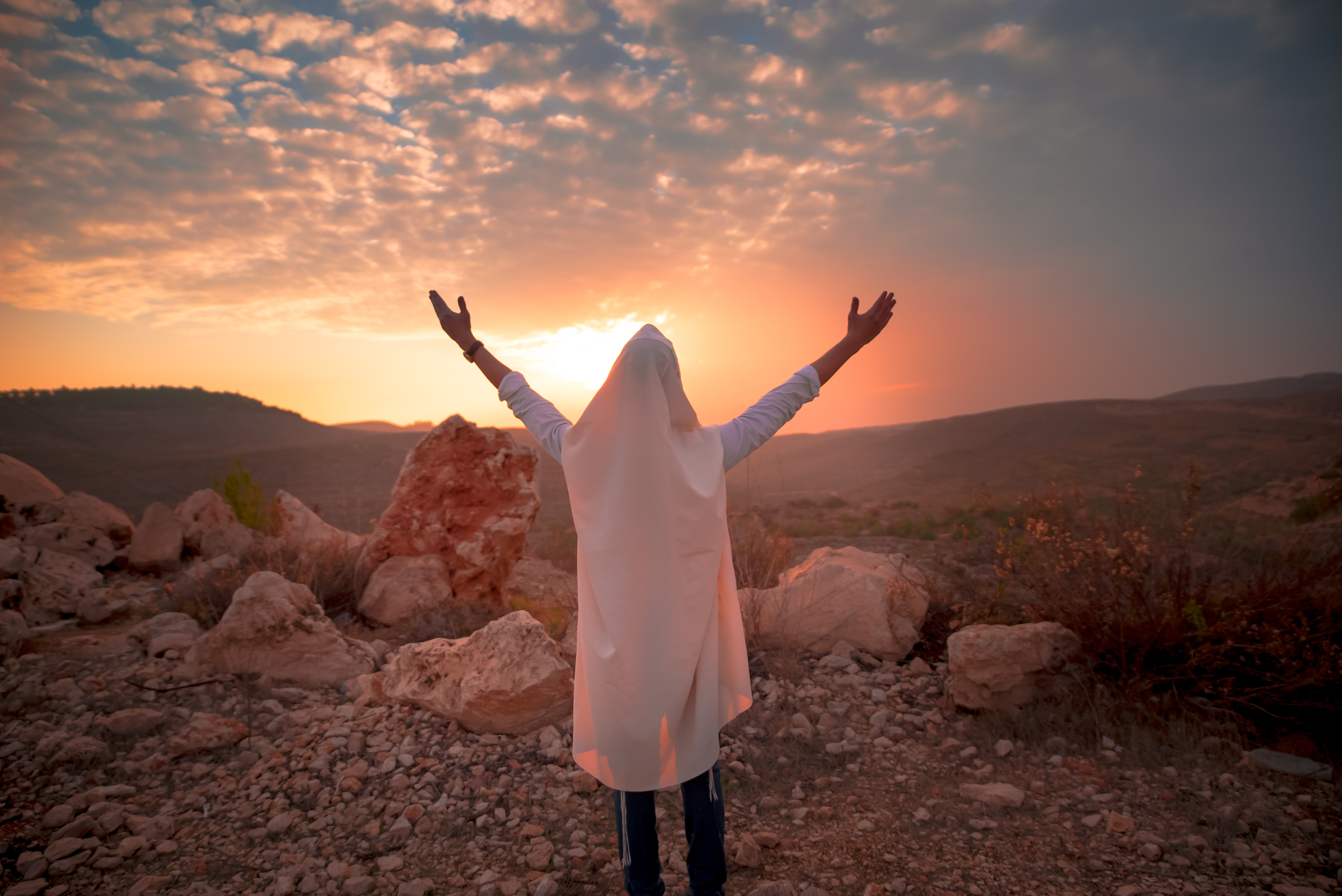A Personal Letter: If Life Matters to You, Take 3 Minutes to Read This
Defining yourself as secular, religiously inclined, or even traditional? Let's put the cards on the table and talk directly.
- גלעד שמואלי
- פורסם י"ד אייר התשפ"ב
 (Photo: shutterstock)
(Photo: shutterstock) #VALUE!
![(Photo: shutterstock)]() (Photo: shutterstock)
(Photo: shutterstock)
If you ask a secular-traditional person what faith is in their eyes, they would say, "Faith is something abstract, not something you can definitively prove. It’s something you feel in your heart.” I want to ask you, while reading this column, to cast aside emotion and think with a clear mind, pure rationality, devoid of emotion.
Let’s speak candidly: either the religious are right, or the secular are right. Either the Torah is true, and we need to observe Shabbat, kashrut, and all other commandments, or not, allowing one to eat an Italian meal on Passover with pasta and pizza topped with mozzarella, and dine at a Druze restaurant on Yom Kippur. It’s black or white. The Torah is either divine truth from the Creator, needing full adherence, or, heaven forbid, fairy tales not requiring us to follow anything it says. Until age 22, I lived a secular-traditional life, doing what I desired with a few exceptions like fasting on Yom Kippur, avoiding leaven on Passover, and foregoing a cheeseburger — not the worst for the diet. Rationally speaking, this lifestyle lacks logic. There’s no reason to fast on Yom Kippur and then drive on Shabbat, as the same Torah commanding fast on Yom Kippur also prohibits driving on Shabbat. If you believe in the Torah and thus observe Yom Kippur, you should follow all its directives. If you don’t believe, hence drive on Shabbat and don’t keep commandments, why fast on Yom Kippur? This convenient perspective, not fully restrictive, gives a sense that if Hashem and the Torah are indeed true, maintaining a few basics satisfies the conscience.
Bottom line, it’s illogical. Either the Torah is true, warranting complete observance, or it isn’t. Gradual strengthening, advancing step by step, is of course noted; yet, the belief that basic practices like observing Yom Kippur and Passover without Shabbat and other mitzvot are adequate lacks logic. Such a lifestyle is emotionally driven, lacking rationale.
 (Photo: shutterstock)
(Photo: shutterstock)What Really Lies Behind This?
The secular-traditional will claim that faith in the Torah isn’t provable with certainty, hence no true commitment. But if a devout believer approaches with "Listen, I have videos proving the Torah couldn't have been written by man. Want to see?", the typical reaction is, "This doesn’t resonate with me. If it fulfills you to be religious, all respect to you, but I’m less connected to this." The believer would respond with, "But if the Torah is true and you’re on a different path, you’re missing out on life itself. Understand? Just watch, don’t gamble with your life," to which the secular-traditional responds... "No, thank you."
The question is whether this "No, thank you" comes from a cold logic or from emotion. What truly underlies the reluctance to dedicate brief time determining if the Torah is divine? Let’s examine.
Refusing Life's Most Beneficial Offer
Imagine a family member or friend comes with "I have a one-time economic offer: invest 50 shekels and you could win a billion. Though you might lose the investment, chances are you won’t. I’m participating, as are some of your acquaintances." A rational person would take it, risking 50 shekels against a massive potential gain, especially since losing wasn’t likely.
Similarly, the believer offers the secular-traditional friend a few hours to watch proofs of the Torah’s divine truth to earn a life if they find the Torah to be ultimate truth, contradicting their current path. They only need to invest "a small amount," a few hours, potentially earning a vast gain in life itself.
Nevertheless, the secular-traditional often refuses to invest time examining the Torah's veracity, even when it's claimed they’re betting their lives. It's merely asked to check evidence.
So why the refusal? Because it stems from emotion, fear of discovering the Torah mandates changes in life, forsaking familiar habits. Refusal to give a chance, to hear and scrutinize, stems from fear of conviction, discovering Torah as truth and thus ending those spontaneous weekend trips...
Who Would Drink a Glass With Poison?
Let’s illustrate with a case where the secular-traditional deems the Torah as having just 1% chance of truth. Is it worth examining its truth then?
Imagine traversing the desert for days without food or water. Suddenly, someone offers, "Here’s a glass of water: 99% chance it’s safe, but 1% contains poison. There’s a hostel, 2 km away, awaiting with food and drink." The logical person avoids the glass, opting to endure a further 2 km trek.
If there’s even 1% chance the Torah is true, and your life isn’t aligned with it, rationally, examining its truth is vital, similar to choosing a longer desert walk over a 1% life risk.
But What About Science?
Claiming, "I give the Torah 0%. I trust science and the scientific theories of universe and human origin," we would counter, "Even science calls it a ‘theory’! The Big Bang Theory, Theory of Evolution, Species Origin Theory. Science itself admits it lacks 100% certainty on universe and humanity’s inception, merely theorizing. Consequently, applying our desert analogy, one should also examine Torah's truth, avoiding life risk. This conclusion applies to the logical, not fear-driven.
How to Investigate?
There are factual proofs in black and white that both the written and oral Torah are not human creations. These include knowledge of global fauna unimaginable 3,000 years ago, unrefuted till today; scientific discoveries made thousands of years absent any technology; illogical Biblical promises and prophecies that materialized; logical proof of the Sinai revelation, uniquely claimed, as unverifiable otherwise; Torah codes, mathematical wonders encoded therein, and more.
Checking the Torah’s truth is simple and accessible. Start with "70 Difficult Questions in Judaism" (search it online). The first question you’ll see is "How can we be sure the Torah isn’t fabricated?" Enter, read the article, watch the videos in the suggested section. Additionally, read the article 'How Can We Know the Torah Isn’t a Fabrication? 12 Proofs to Dispel the Doubts'.
In Conclusion, Let’s Speak Plainly
Ultimately, truth is inescapable. At age 120 maximum, we’ll face the truth. Either nothing awaits... and the secular are proven right, or surprise!
Let me conclude by sharing a personal story. In school, I was stressed from exams, especially math and physics. Exam sheets prompted immediate solving, quickly navigating equations and variables, and jotting conclusions. Many times, my exam returned with “You didn’t answer the question!” written in red ink. Overwhelmed, I reached conclusions missing the asked questions. I resolved to read questions at least twice before answering, ensuring comprehension before proceeding.
Most people live their lives like that stressed student, moving through life - studies, army, work, family, mortgage, errands, shopping, etc. They proceed on autopilot, never pausing to evalutate "Is there something I’m meant to do here? Is there a purpose to life? Why am I here? Am I fulfilling a mission or assignment?" They’ve never pressed pause to reflect on life’s questions.
May we all avoid reaching the test's end, discovering we never answered the question...

